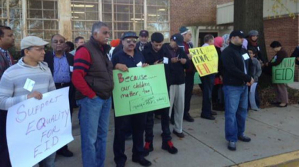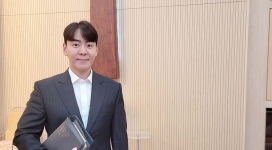
All Christian- and Jewish-based holiday names have been eliminated from next year's school calendar in Montgomery County, Maryland in response to pressure from Muslim groups in the area.
The county's Board of Education voted 7 to 1 Tuesday to do away with all religious holiday names and references to religious holidays on the 2015/2016 school calendar after Muslim community leaders prompted the board to include Islamic holidays as well.
In 2013, Muslim leaders urged parents to keep their children home on the most important Islamic holidays to show the district the importance of those holidays to their religion. Montgomery school officials reported that the resulting absences accounted for only 5.6 percent of students and five percent of teachers, which is only slightly higher than a normal day for the school district.
But this move by county school officials is not exactly what the Muslim leaders had in mind.
"By stripping the names Christmas, Easter, Rosh Hashanah and Yom Kippur, they have alienated other communities now, and we are no closer to equality," remarked Saqib Ali, a former Maryland state delegate and co-chair of the Equality for Eid Coalition. "It's a pretty drastic step, and they did it without any public notification."
The Eid Coalition's Zainab Chaundry has similar concerns, stating that the school board made this decision to spite the group and avoid giving Muslims equal treatment. "They would remove the Christian holidays and they would remove the Jewish holidays from the calendar before they would consider adding the Muslim holiday to the calendar," she noted.
School Superintendent Joshua P. Starr presented the board with three different options for Tuesday's vote, including one to eliminate just the Jewish names, but members decided to go for broke and remove all references to religion altogether. They say that the new holiday list is comprised of days off that relfect normal days of the year in which absenteeism is most likely.
The main point Muslim leaders wanted to make with this request was to allow their children to have off on Eid al-Adha, which is a major Islamic holiday that falls on the same day as the Jewish holiday, Yom Kippur. Montgomery schools are already closed that day, so the leaders didn't think it would be a drastic change.
The lone vote against the new change was from board member Michael A. Durso who expressed concerns over how the complete removal of all religious names might look to the Islamic groups who simply asked for inclusion. "No matter how well-intentioned we are, it comes off as insensitive," he said.
Montgomery County is Maryland's most populous county with just over one million residents. The changes to the county's school calendar will go into effect with the new school year in 2015.







